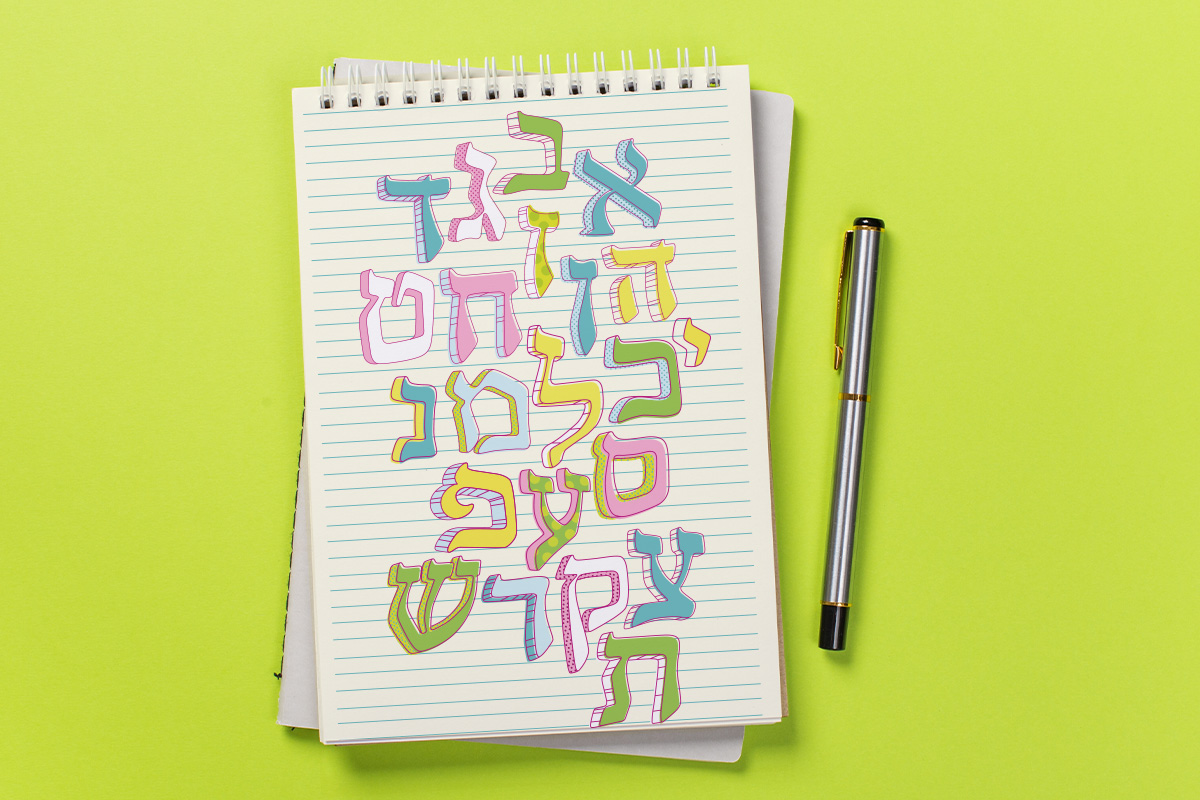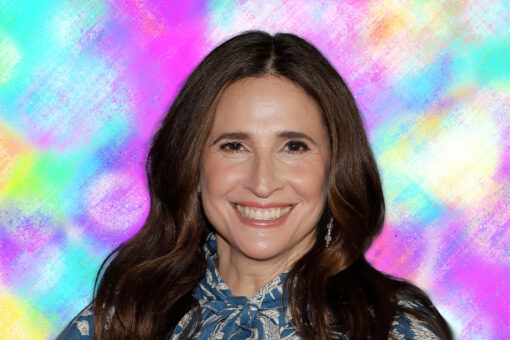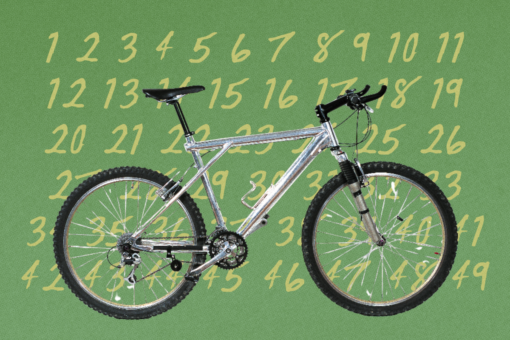Before I wrote this essay, I asked my dad if he would be OK with me writing about how I don’t know Yiddish. Would it embarrass him?
“You’re the one who should be embarrassed,” my dad said. “You’re the one who doesn’t know Yiddish!”
My father, Michael Wex, is the top Yiddish expert in the world. He wrote The New York Times bestseller “Born to Kvetch: Yiddish Language and Culture in All Its Moods.” If you go to your parents’ and grandparents’ bookshelves, you will probably find a copy, or two.
Yet I, his only child, does not speak the language that he has dedicated his entire life to studying and preserving. Oy.
Though we didn’t speak Yiddish at home, it was simply in the air. Yiddish was a constant in my life, an ever-present association people had with me. Not to brag, but I’m like the Zoë Kravitz of the Yiddish scene. Well, not quite, because I have literally no merits of my own in this scene nor am I hauntingly beautiful, but my last name does open a lot of doors in the Jewish world. I’m more akin to Jakob Dylan drinking RC Cola backstage at a klezmer concert. (The fact that you have to look up who that is says everything about my status here.)
But despite this fact, and despite the nepotism that I could have accumulated in the Jewish world, I had no interest in my dad’s work as a kid. I preferred to read about Hilary Duff’s most embarrassing moments rather than the history and cultural significance of Yiddish.
And yet, Yiddish refused to leave me alone. It was like a ghost living in our house: it never spoke, but I felt its looming presence. When I went away to university, Yiddish decided to come along. In fact, it came more alive. Suddenly this language — that I didn’t even speak! — began to manifest as I moved throughout my life. In my Roman history class, I pronounced “chalis” with a hard “ch” (it sounded like I said challah) and everyone laughed at my “guttural” pronunciation. I knew I had only said it like that because anytime I see a “ch” I assume it’s pronounced like a ches in Yiddish or Hebrew. At one point a Jewish professor told me how nice it was to have someone “so Yiddish” around on our very non-Jewish campus. Being Jewish was one thing, but being “Yiddish”? That was a vibe I hadn’t realized I was giving off.
Living in a goyish city on a goyish campus for four years made me more connected than ever to Yiddish. It was the first time I could appreciate how much it connected me to the world of my upbringing and community. When I graduated from university and moved back home, I decided it was time to finally learn the language. Though I had half-heartedly tried to learn Yiddish in the past, this time I was ready to go full force. I had the world’s top Yiddish expert living under the same roof as me and I had a desire to learn. What could go wrong?!
For three months, I did Yiddish lessons three times a week with my dad. We got halfway through Weinreich’s College Yiddish and then…work was getting busy for me. I wanted to play squash. I wanted to hang out with my friends. Lessons three times a week, in addition to weekly homework, was too much. We tried to pare down to twice a week, but my motivation continued to wane.
I felt so guilty and ashamed for not continuing with the lessons. When I finally owned up to my dad about not having time for Yiddish anymore (we hadn’t had a lesson together in weeks, so it was pretty obvious), he shrugged as if he expected it.
“But you don’t even like teaching beginner Yiddish,” I said to him, trying to absolve myself of some guilt. “So maybe this is good for both of us!”
“Yeah, but I didn’t mind teaching you.”
That was when I realized why Yiddish would never leave me alone. It didn’t matter that I didn’t know how to speak it properly. Yiddish would always be tied up with my dad. And so it would always be tied up with me.
But what did that even mean? I understood, now, that my connection to this language was a part of my legacy and sense of self, but I had no context for what to do with that connection. I had always approached Yiddish as a language, a series of words and grammar rules I could never master. Over the next few months, I started to try and understand more about the ghost of Yiddish lingering around me. The more I learned about the history of Yiddish, the more I realized that my dad’s job isn’t just a job. It’s upholding a language of resistance. It’s reviving a language that’s dying. It’s keeping Judaism alive, even when so many people want Jews dead.
For the first time in my life, I began to fully appreciate the cultural importance of Yiddish and my dad’s work, and the fight to which he has dedicated his life. Now a new — yet oddly familiar — set of questions came back with even sharper edges. What does it mean that I still don’t speak Yiddish? This language is so important to Jewish history, to my father, to the story of our survival. By not taking the legacy of Yiddish into my own hands, am I part of the reason that Jews are losing their culture? And am I being a bad daughter, to boot?
I know it is not logical, but sometimes I feel like one of those Marvel superheroes who holds the fate of the world in their hands, like I carry the weight of this language on my shoulders, and I’m responsible for keeping it alive. And yet I’m actively shirking off this responsibility, not taking up even the one act of assistance by learning Yiddish. And for what? Because there are other things I want to do? All these other things — playing squash, hanging out with my friends, even working — all seem so trite and stupid compared to upholding Yiddish and the fate of the Jewish people. And how can I be so selfish, thinking of my own interests, when what I really should be doing is amplifying my father’s work?
Yet I know that I’m lucky to have this connection to Yiddish. As much as it’s a complicated relationship, it’s a part of my identity. Just like the way the neighborhood I grew up in or the pop I chugged at recess shaped me, Yiddish has made me who I am.
So how do I bridge the gap between guilt and gratitude? I don’t know.
I’m both allowed to be my own self and pursue my own interests and know that I have an obligation to help keep my father’s Yiddish work alive for him and for Jews everywhere. It’s clear to me that I need to make some strides toward learning Yiddish to do this. It’s just a matter of where — and how — to start.



